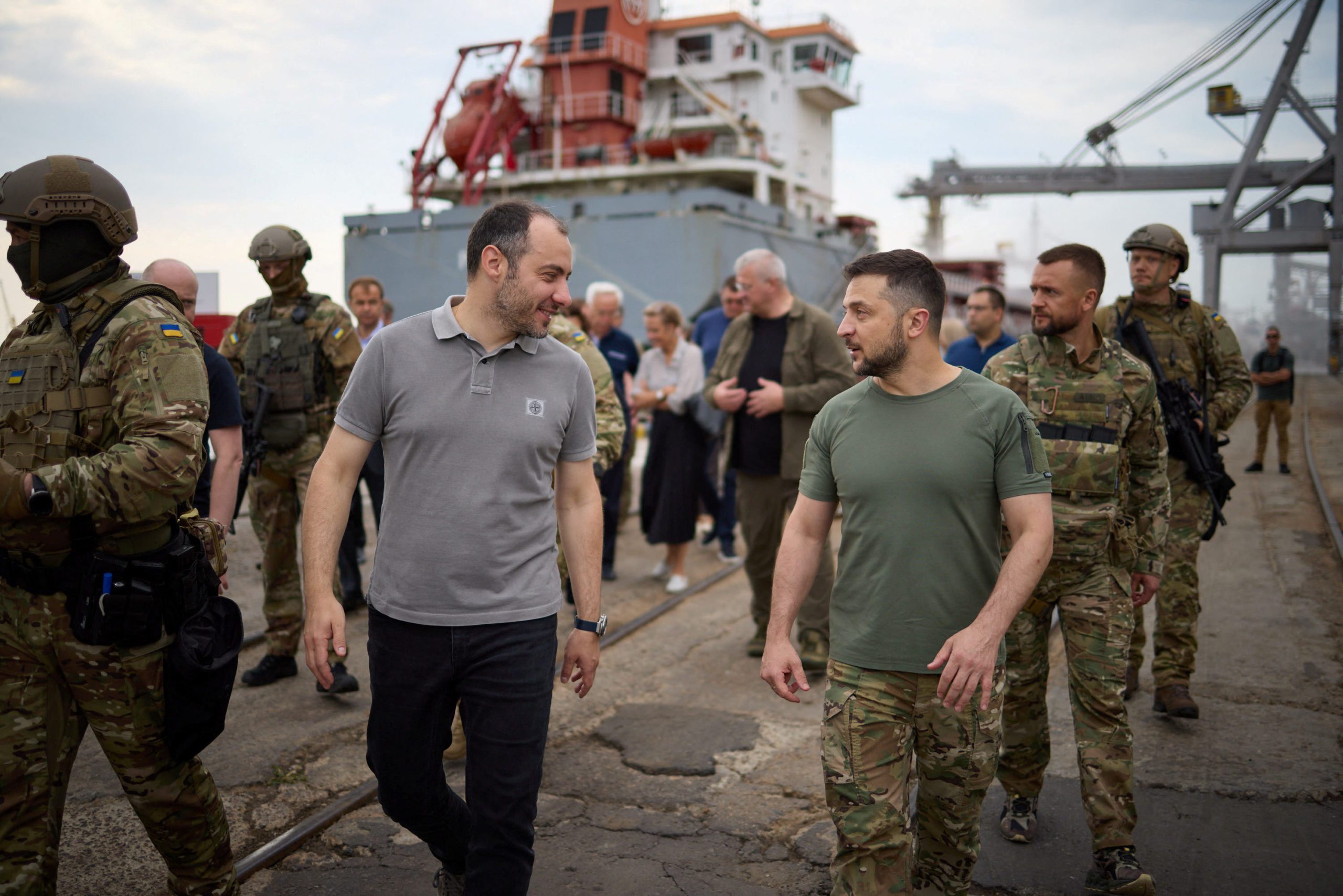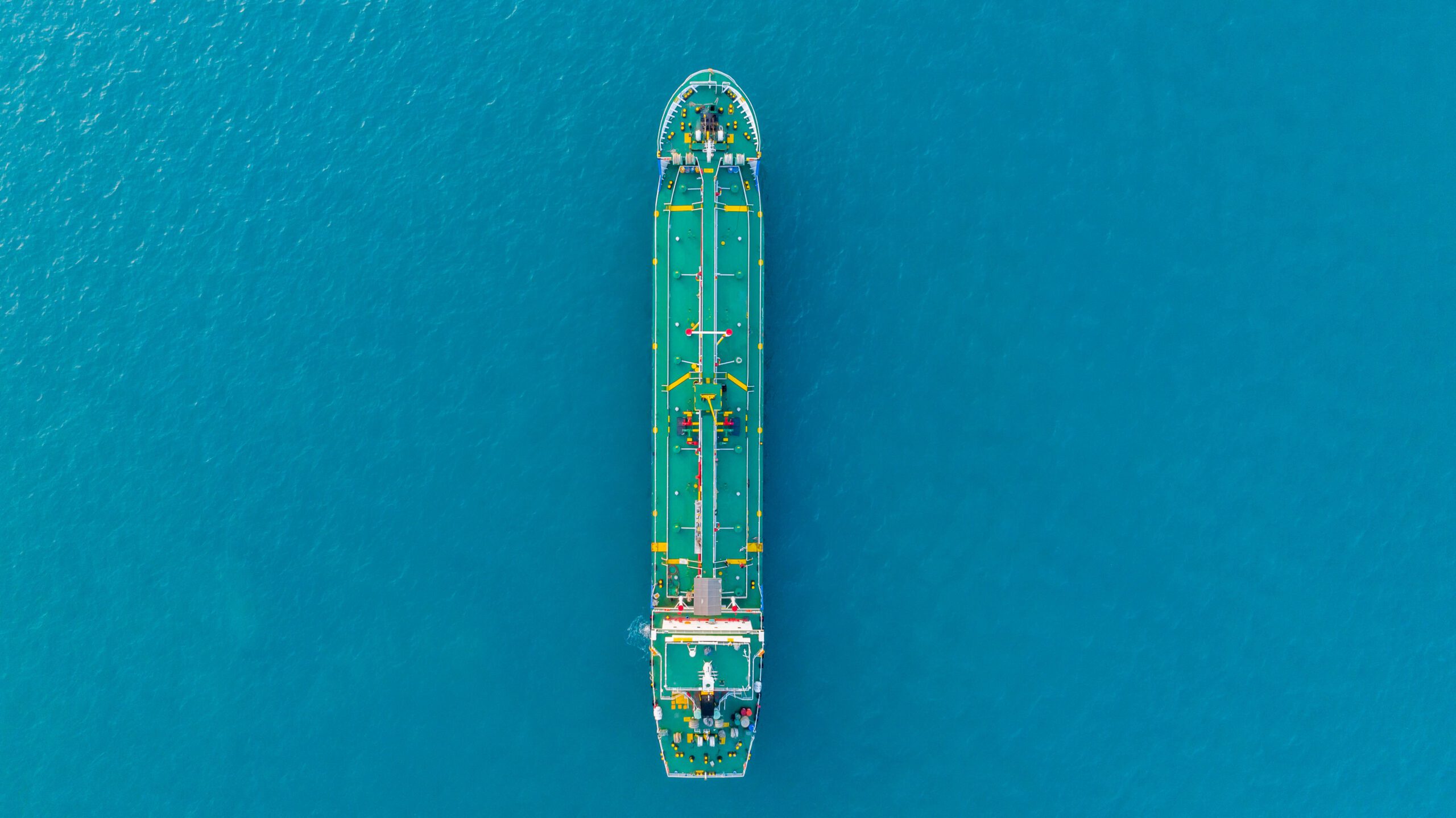By Áine Quinn, Salma El Wardany and Volodymyr Verbyany (Bloomberg) —
Ukraine said it’s close to restarting grain shipments, although the timing will depend on go-ahead from the United Nations, which helped broker last week’s deal, and there were still few details available about how the process will unfold.
“Our side is fully ready,” Ukrainian President Volodymyr Zelenskiy said in the Odesa region, where he was watching grain being loaded onto a Turkish ship at Chornomorsk port.
Crop markets are watching closely for concrete moves toward unlocking the millions of tons of grain that have been piling up in Ukraine, which is one of the biggest wheat, corn and vegetable-oil suppliers. The war has shaken the food trade and spurred warnings about a global crisis, while the country is under pressure to resume exports to boost its war-devastated economy. Its farmers have also warned they are running out of space to store crops.
UN spokesman Farhan Haq declined to commit to a day when the first ship would leave. A coordination center in Istanbul “is working to establish standard operating procedures, including monitoring and inspection procedures and emergency response procedures,” he said at a briefing. “Once all those elements are place, we’ll start seeing the first movements of ships.”
There have been incremental signs of progress: Ukraine’s Sea Ports Authority earlier told companies a test boat would sail soon, and a group of insurers set up a program to cover cargoes of food from Ukraine — insurance has been seen as one of the big challenges to shipments. However it’s been a week since the agreement was reached between Russia, Ukraine, Turkey and the UN, and some traders and exporters said they were still waiting for information about how and when vessels will depart.
A successful resumption of grain and oilseed shipments from Ukraine is seen as key to easing a global food crisis, but many analysts and western officials have been skeptical about whether last week’s deal can be implemented. Shipowners are facing a myriad of challenges including getting insurance and recruiting crews to operate the ships as safety concerns remain. Russia’s attack on Odesa’s sea port with cruise missiles hours after signing the deal also raised questions about its commitment.
Tariel Khajishvili, director at shipping agent Novik LLC, said by phone from Odesa that he’d been told on Thursday by port authorities that a test ship would sail on Friday, but now notified that it was delayed to some time over the weekend.
“We don’t know the details of how this would work and the port authorities are not giving written confirmations, but they have issued a list of rules which ships have to abide by,” he said, adding that he had two ships ready to sail.
Departing vessels will need to navigate through safe pathways through the mined seas and Infrastructure Minister Oleksandr Kubrakov told reporters that Ukraine was hoping to receive confirmation on Friday from the UN about the corridors.
Ascot Group is leading a group of insurers in offering up to $50 million of cover for grain and food cargoes from Ukraine’s ports. The program was put together by Marsh, the world’s largest commercial insurance broker.
“The creation of this facility is an important step in releasing crucial grain supplies from Ukraine,” said Marsh Global Head of Marine and Cargo Marcus Baker. Cargo insurance is just one leg of what will required to get shipments to market, he said, as hull war insurance will also be needed.
–With assistance from Daryna Krasnolutska, Alaric Nightingale and Abdel Latif Wahba.
© 2022 Bloomberg L.P.

 Join The Club
Join The Club











